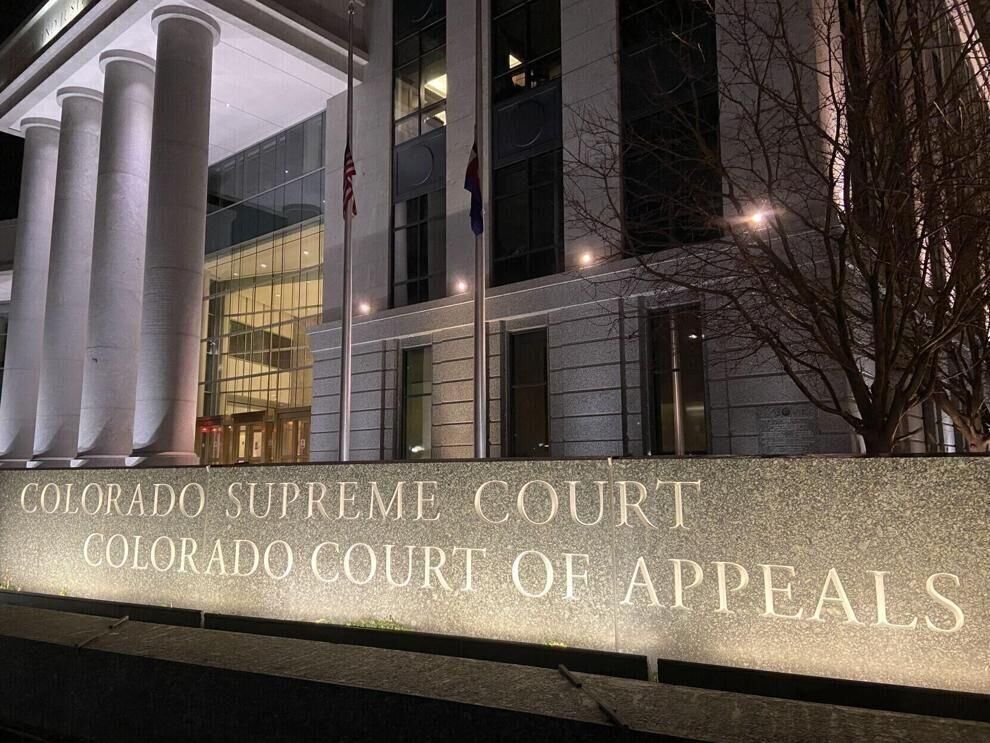Divided appeals court finds woman convicted of murder not subject to Miranda rights violation

By 2-1, Colorado’s second-highest court last week decided police in Moffat County were not required to read a woman her Miranda rights in the two hours they supervised her, kept her in an interrogation room, bound her hands to preserve evidence and watched her make incriminating statements.
Law enforcement are required to provide a Miranda warning that informs a suspect about their constitutional rights to silence and to legal representation when they are subject to a custodial interrogation. A three-judge panel for the Court of Appeals conceded anyone in Rachel Ann Niemeyer’s position would not have felt free to leave in the two hours before a detective actually read Niemeyer her Miranda rights.
However, being “in custody” is not a function simply of whether a person is able to leave, but whether their freedom is curtailed to a degree resembling an arrest.
The panel’s majority concluded Niemeyer’s freedom was not limited to that degree. Despite keeping her in the presence of law enforcement and zip-tying her hands at the station, police had still given Niemeyer the impression she would eventually be taken to the hospital to see her dying husband.
“Even if bagging someone’s hands would suggest to a reasonable person that the police think she could have been involved in a crime, it would not convey the message that the person is under arrest,” wrote Judge John Daniel Dailey for himself and Judge David Furman.
Judge David J. Richman disagreed, arguing that any reasonable person would have considered the circumstances to be akin to an arrest.
“Although I agree with the premise that putting plastic bags on a person’s hands to preserve evidence of gunshot residue does not automatically convert an otherwise noncustodial situation into a custodial one,” Richman wrote, “we have in this case a situation where the person was forced to keep the bags on her hands against her will and for about an hour.”
A jury convicted Niemeyer in 2018 of second degree murder for the death of her husband, Michael Adam Freese. The couple had recently relocated from Florida and were living at the Bear Valley Inn in Craig the evening of Freese’s killing.
Freese and Niemeyer had been drinking heavily on Oct. 4, 2017 to celebrate their recent job offers. Police responded to the motel room around 10 p.m. and found Freese had suffered a gunshot wound to the side of his head, with Niemeyer holding him in her arms. Paramedics transported Freese to the hospital, and he later died of his injuries.
“Can I please just go see my husband?” Niemeyer asked.
Officer Will Roland replied that “we’ve got to take care of our stuff first.” Niemeyer would repeatedly ask to be driven to the hospital, but each time Roland demurred.
Roland then told Niemeyer he would transport her to “someplace warm” – the police station. He placed Niemeyer in an interrogation room. Once there, he affixed plastic bags around her hands and fastened them with zip ties to preserve any gunshot residue.
“You gotta leave them on,” Roland told Niemeyer. Subsequent testing showed no gunshot residue on her hands, and Niemeyer’s DNA and fingerprints were not found on the rifle that killed Freese.
Niemeyer stayed in the interrogation room with a victim advocate, intermittently renewing her request to go to the hospital and being denied each time by the advocate and by Roland.
Around midnight, Detective Norm Rimmer entered the interrogation room and told her she was not under arrest. He then removed the plastic bags from Niemeyer and swabbed her hands.
“So, did I shoot him?” Niemeyer asked the detective. She described her day with Freese, admitting she and Freese had been playing with the rifle before the shooting. She believed there were no bullets in the gun, and each person had allegedly pulled the trigger multiple times without the gun firing.
During her conversation with Rimmer, Niemeyer made several incriminating statements.
“I think I shot him.” “I think I did it.” “He said there were no bullets.” “Oh, my god, I shot him.” “I don’t remember giving it back to him.” “I thought he did it. But now that I think about it, I think I did it,” she said.
Rimmer then provided Niemeyer a Miranda warning and she immediately invoked her constitutional right to an attorney. Rimmer placed her under arrest.
Chief Judge Michael A. O’Hara III declined to exclude Niemeyer’s statements from her trial, which is the protocol when police fail to provide a Miranda warning before interrogating a suspect in custody. Jurors subsequently saw the video from the interrogation room. After the verdict, O’Hara sentenced Niemeyer to 18 years in prison.
On appeal, Niemeyer argued police had acted unconstitutionally by effectively placing her in custody but failing to advise her of her constitutional rights. Niemeyer’s “drunken statements” in custody, her lawyer argued, were the only evidence suggesting she shot Freese.
“Ms. Niemeyer was under police control from the initial police response. She had no practical or realistic ability to refuse police instructions, leave their presence, or end the encounter, as police refused to leave her at the motel or take her anywhere but the police station,” wrote Deputy State Public Defender Karen Mahlman Gerash. “From the time she was placed – alone – in the interrogation room with bags on her hands for evidence collection, police were obligated to advise Ms. Niemeyer to make sure she understood her constitutional protections.”
The prosecution claimed Niemeyer would have been allowed to leave, but she had never asked to. Further, at the time of her conversation with Rimmer, the detective only considered her to be a “witness to a possible suicide,” not a murder suspect.
The Court of Appeals’ majority sided with the government, believing police had not said anything to Niemeyer to indicate she was “not going anywhere anytime soon.”
“Indeed, just the contrary, the officer’s actions and statements would have led a reasonable person to believe that she would be on her way to the hospital to check on her husband as soon as the hand-bagging procedure was completed,” wrote Dailey in the Oct. 27 opinion.
The majority also concluded Niemeyer’s statements at the police station were voluntary, not coerced.
Richman questioned that analysis. Rimmer never offered to take Niemeyer to the hospital after the gunshot residue testing was complete, he observed, and police continuously gave her the “runaround” when she did ask to leave.
“Far from assuring Niemeyer that she would be going to the hospital ‘soon,’ the officers’ responses – and non-responses, for that matter – communicated that they would not even consider taking her to the hospital until after they completed any number of unspecified, potentially time-consuming tasks,” Richman observed.
He indicated he would have overturned Niemeyer’s conviction because the circumstances showed Niemeyer’s freedom was restricted similar to an arrest, and her statements should have been excluded from trial.
The case is People v. Niemeyer.












